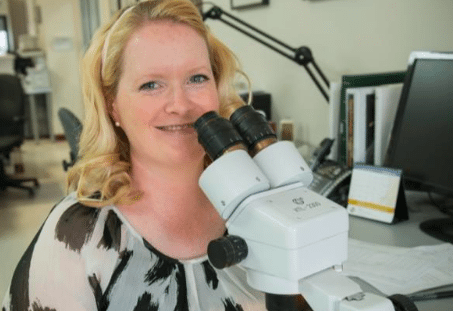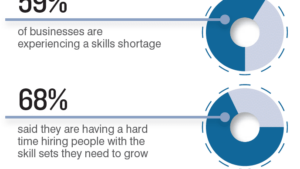Have you ever looked at a signature on a seed testing report of analysis and thought, “I wonder what kinds of qualifications are needed to become an accredited seed analyst?” Here is an overview of the hurdles that must be overcome to sign that report and take accountability for the testing it represents._x000D_
_x000D_
To become an accredited seed analyst you must pass an exam administered by the Canadian Food Inspection Agency (CFIA). Each year CFIA’s exam is reviewed by the Commercial Seed Analysts Association of Canada (CSAAC) Seed Analyst Accreditation Committee (SAAC). The purpose of the exam is to verify that the analyst trainee has the technical knowledge, practical experience, and ability to conduct purity, germination, and true loose smut disease tests according to the Canadian Methods and Procedures for Testing Seed._x000D_
_x000D_
The exam consists of four sections; purity written, purity practical, germination written, and germination practical. This is usually broken up into two days as it takes about six hours each day (three hours are allowed per section). It is a very intensive experience for the candidate and many hours of study as well as on-the-job training are required to get to this point. In order to apply to write your exam you must have 1,500 hours working under the supervision of an accredited analyst for both purity and germination respectively. It takes a minimum of two years to be able to write both the purity and germination exam for all crop kinds._x000D_
_x000D_
The scope of accreditation may depend on what crop kinds are being tested in the candidate’s respective laboratory and the crops on the grade tables are divided into groups for that purpose. Therefore, you could write your exam for purity or germination or break it down even further by only seeking accreditation for certain crops kinds or groups. This is a very important consideration because as an accredited analyst, you will be responsible for conducting proficiency testing based on your laboratory’s scope of accreditation. The proficiency tests are administered by CFIA and are very challenging if you are not familiar with the crop kinds involved._x000D_
_x000D_
The more experience working with a variety of samples, the better. Each year brings new challenges for analysts from varied growing conditions and seed being imported from areas with unfamiliar weed seeds._x000D_
_x000D_
Having an accredited seed analyst on staff is a requirement for an Accredited Seed Testing Laboratory under the CFIA Seed Laboratory Audit and Accreditation Protocol (Seed LAAP). In addition, an accredited seed analyst is eligible to apply for membership and the use of the seal of the Commercial Seed Analysts Association of Canada (CSAAC). Membership in CSAAC is of huge value to any analyst, whether you are newly accredited or are very experienced. Workshops and resources are vital tools to maintain accreditation and provide an opportunity to collaborate with colleagues across Canada and the U.S._x000D_
_x000D_
Remembering back to when I wrote my exam, it was very nerve-wracking. The relief at completion was soon replaced by suspense waiting to find out my results. Next time you see the signature of an accredited seed analyst, rest assured they have spent many hours honing their skills and they are experts in their field._x000D_
_x000D_
For more information go to seedanalysts.ca and see Candidates Guide to Seed Analyst Accreditation by CFIA.












